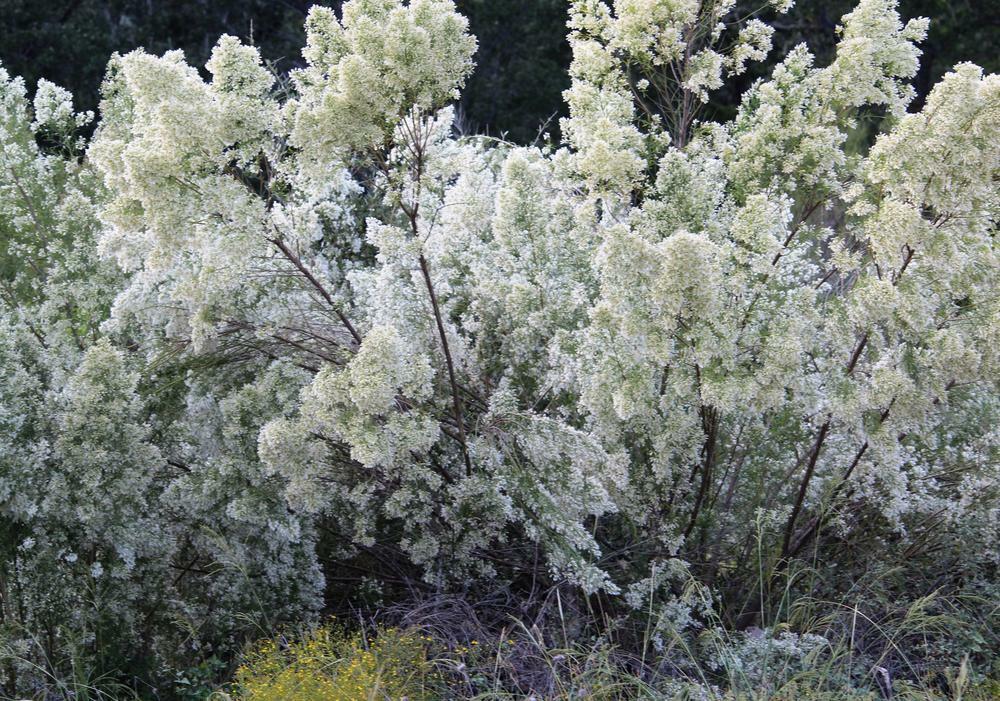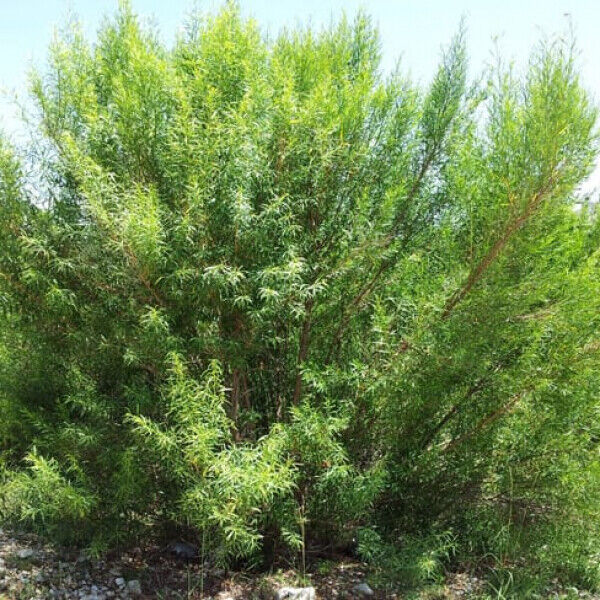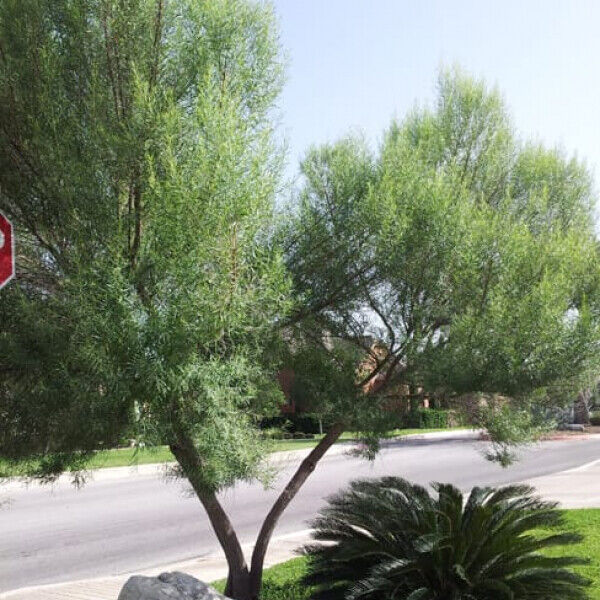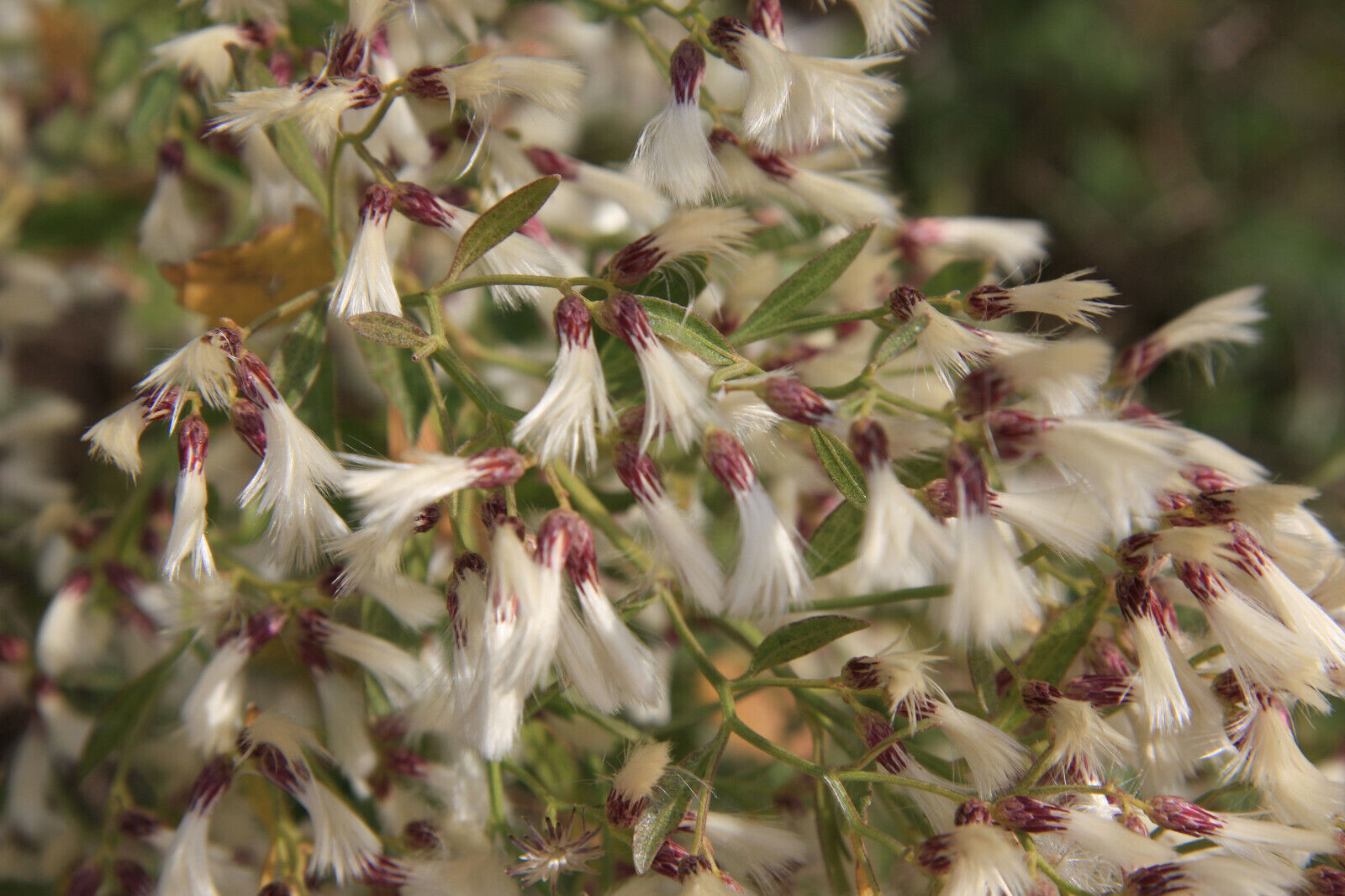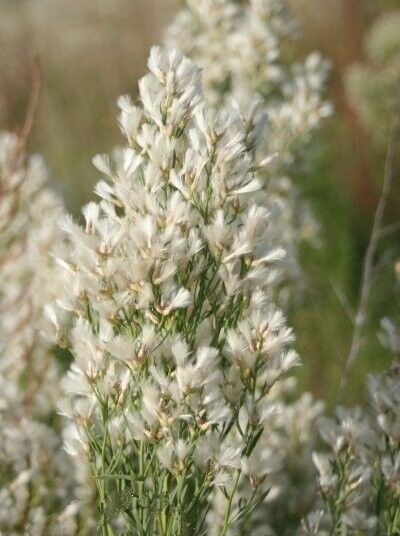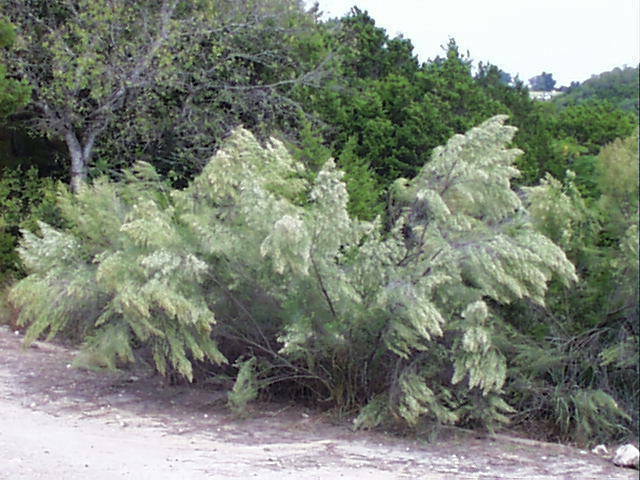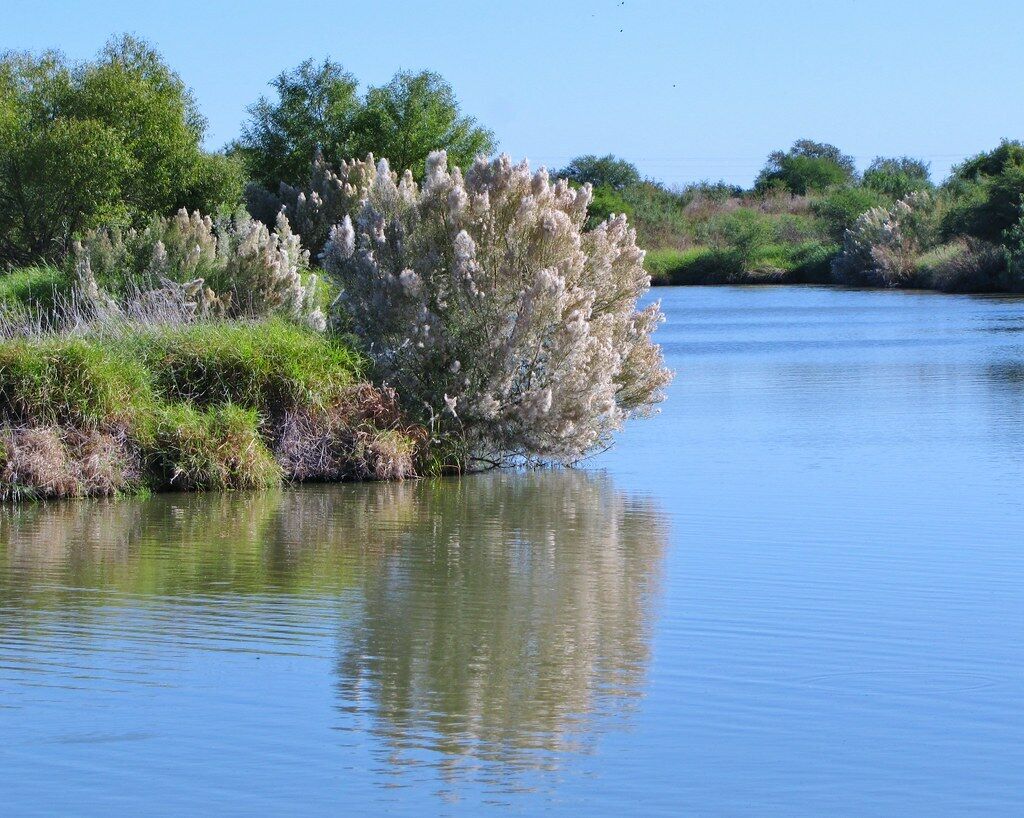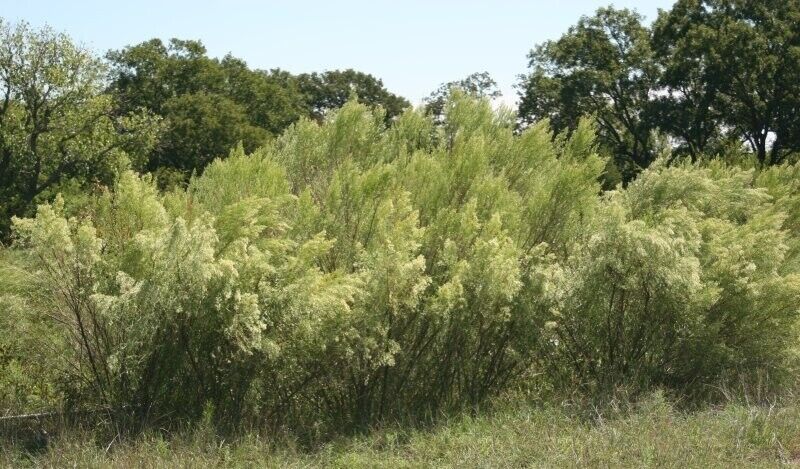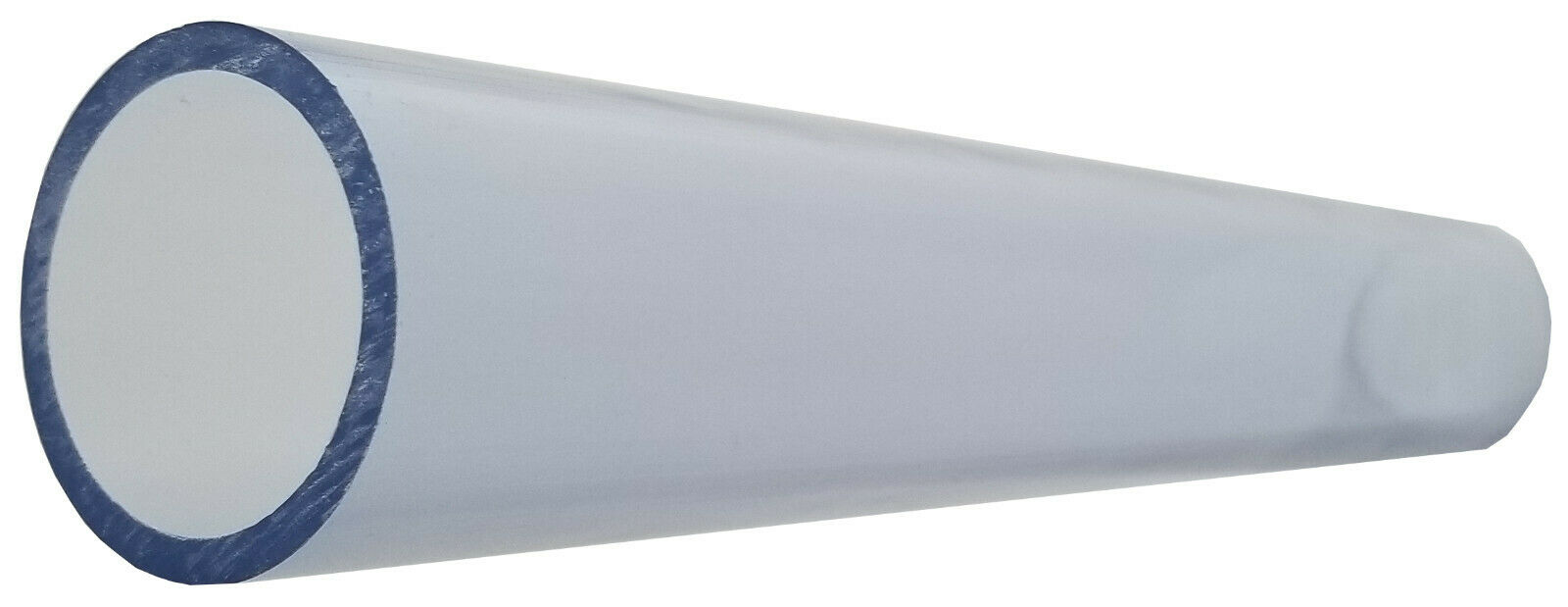-40%
false-willow, Roosevelt weed (Baccharis neglecta)—~1,000 seeds (.00)
$ 1.58
- Description
- Size Guide
Description
—false-willow,
Roosevelt weed, poverty weed
(Baccharis neglecta)—
U.S. native shrub
—Size
: 3-10' tall by 3-10' wide
—
Site
: full sun
—
USDA Hardiness Zones
: 6-10
—
T
o
Propagate
: Seed needs no special pretreatment.
A tough, easy-to-grow, native shrub grown for its gorgeous summer blooms and as a premium pollinator plant.
False willow's narrow
dark green
willow-like leaves provide a delicate, airy texture. In late-summer to autumn false-willow is covered by creamy clusters of white flowers which are so adored by pollinators that the shrub almost buzzes! One would be hard-pressed to find a more attractive plant to pollinators attracting a very wide variety of bees, beetles, butterflies, and other pollinators all on the shrub at the same time. In late summer the flowers mature to puffy plumes of white which cover the plant. Because its long stems bend with the wind the shrub literally looks like a white, billowy cloud swaying back-and-forth! The soft, languid, large plumes resemble the nineteenth-century European nature paintings.
Easy to grow, thrives on neglect, will grow in wet or drought-prone soils (extremely drought-tolerant), salt tolerant, and can be cut back in late winter. In fact, if space is limited annual cutting back will keep this shrub manageable.
A native shrub that inhabits wasteland, low wet areas, and other neglected spaces. Excellent plant for erosion control as its roots hold back soil.
A great native plant which has many ecological and aesthetic attributes.
Was named poverty weed and Roosevelt weed because of its use during the dust bowl
because of its extreme environmental tolerances
and ability to retain soil. Dioecious
: male and female flowers are on separate plants.
Note
: If you order more than one lot of one species of seeds, for example you place two orders of 100 seeds, or whatever variation is offered, we assume you want 200 seeds and your order will be sent in one seed packet.
Additionally, the seeds offered for this species have been prepared by removing
the
pappus (
feathery bristles or hairs).
